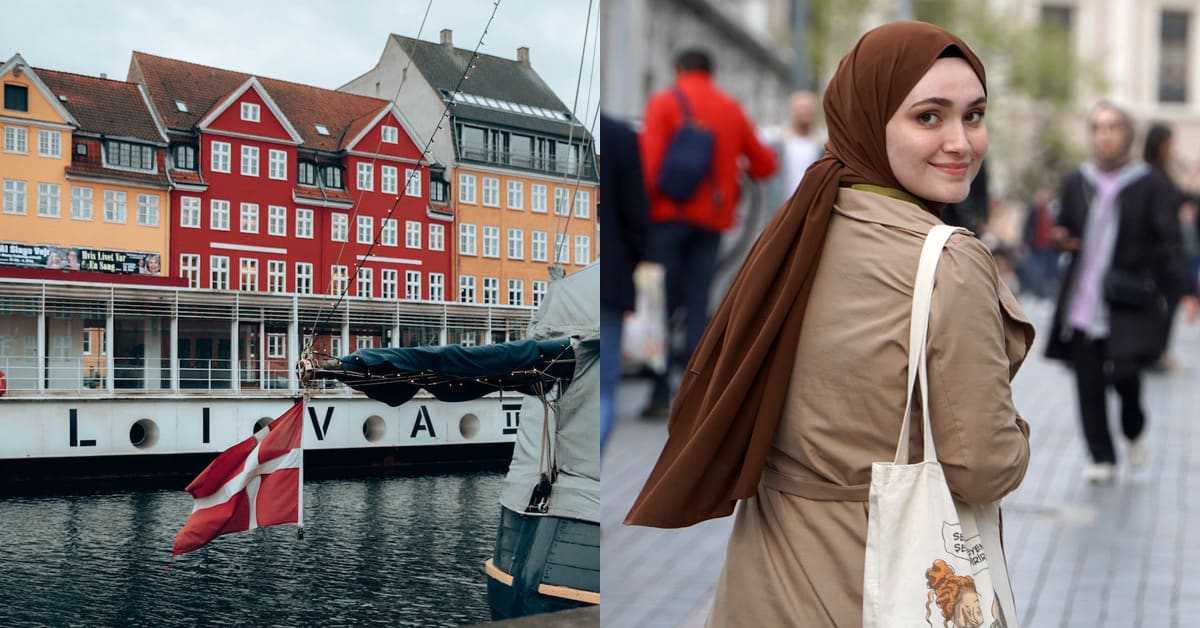Denmark is a small Scandinavian country located in Northern Europe. It is known for its beautiful landscapes, rich history, and vibrant culture. Denmark is also home to a growing Muslim community. As a result, Denmark has become an increasingly popular destination for Muslim travellers seeking to explore the country’s unique blend of modernity and tradition.
From its bustling cities to its picturesque countryside, Denmark offers a range of experiences catering to Muslim travellers’ needs and interests.
Is Denmark Muslim friendly
Is Denmark Muslim friendly?
Denmark is generally a tolerant and inclusive country, and many Muslims live and work there without facing significant issues.
However, like any country, there may be isolated incidents of discrimination or prejudice.
Denmark has a number of mosques and Islamic cultural centers, and halal food is available in many places.
But, it is important to note that Denmark has implemented some policies that have been criticised as targeting Muslims, such as the ban on face-covering garments like the burqa and niqab.
Overall, Denmark can be considered Muslim-friendly, but individual experiences may vary.
Does Denmark have halal food?
Yes, Denmark has halal food available in many restaurants and supermarkets.
There are also several halal-certified food producers in Denmark.
What is the largest mosque in Denmark?
The largest mosque in Denmark is the Hamad Bin Khalifa Civilization Center, also known as the Grand Mosque of Copenhagen.
Is Denmark safe for Muslim?
Denmark is generally considered a safe country for all individuals, including Muslims. Denmark has a reputation for being a tolerant and inclusive society, and the government has implemented policies to promote integration and combat discrimination.
However, like any country, there may be isolated incidents of discrimination or hate crimes, but these are not representative of the overall safety and acceptance of Muslims in Denmark.
Are there many Muslims in Denmark?
Yes, there are approximately 320,000 Muslims in Denmark, which is around 5.5% of the total population.
The majority of Muslims in Denmark are of Turkish, Pakistani, and Arab descent.
Is Denmark a good place to live in for Muslims?
Denmark is known for being a tolerant and inclusive society, and Muslims are a recognized minority group in the country.
The Danish government guarantees freedom of religion and prohibits discrimination based on religion.
There are also several mosques and Islamic centers in Denmark, and halal food is widely available.
However, like any country, there may be some challenges and issues that Muslims may face, such as Islamophobia or cultural differences.
It is important to research and speak with other Muslims living in Denmark to better understand the experience.
As a Muslim, what should I prepare before travelling to Denmark?
Here are some general tips for Muslim travellers to Denmark:
1. Research the local customs and laws: It is important to be aware of the local customs and laws of the country you are visiting. In Denmark, for example, it is customary to remove your shoes before entering someone’s home.
2. Pack appropriate clothing: Denmark is a relatively liberal country, but it is still important to dress modestly as a sign of respect for the local culture. Women should avoid wearing revealing clothing, and both men and women should cover their shoulders and knees.
3. Find halal food options: Denmark has a small Muslim population, so it may be difficult to find halal food options. However, there are some halal restaurants and grocery stores in major cities like Copenhagen.
4. Learn some Danish phrases: While many Danes speak English, it is always appreciated when travellers make an effort to speak the local language. Learning some basic Danish phrases can help you navigate the country and communicate with locals.
5. Be respectful of local customs and beliefs: Denmark is a secular country, but it is still important to be respectful of the local customs and beliefs. Avoid criticizing or mocking the local culture, and be open to learning about new customs and traditions.

